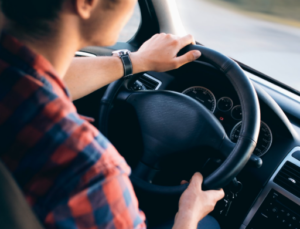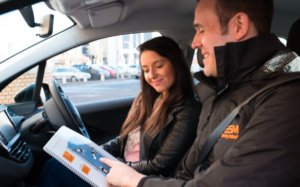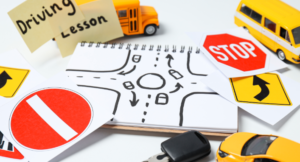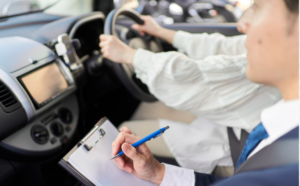A first-time drink-driving offence in the UK is a serious legal matter, leading to significant penalties, including a driving ban, fines, and even imprisonment in severe cases. The UK has strict laws to prevent drink-driving and ensure road safety.
This article explains drink-driving laws, penalties for first-time offenders, the impact on insurance and employment, and legal options for those facing a conviction.
First Time Drink Driving Offence UK – How Much is Too Much?
The legal alcohol limits for drivers in the UK depend on where you are. The limits are measured through breath, blood, and urine tests, and exceeding them can result in a first time drink driving offence UK, leading to serious penalties.
Legal Alcohol Limits in the UK
| Measurement | England, Wales & N. Ireland | Scotland |
|---|---|---|
| Breath | 35 micrograms per 100ml | 22 micrograms per 100ml |
| Blood | 80 milligrams per 100ml | 50 milligrams per 100ml |
| Urine | 107 milligrams per 100ml | 67 milligrams per 100ml |
- Scotland has stricter drink driving limits compared to the rest of the UK.
- Even small amounts of alcohol can impair driving ability, and police can charge drivers they believe are unfit to drive, even if under the limit.
Penalties for a First-Time Drink Driving Offence in the UK
The punishment for a first-time drunk driving offence depends on how much alcohol was in your system, whether there was an accident and any aggravating factors.
Driving or Attempting to Drive While Over the Limit
- Up to 6 months in prison
- Unlimited fine
- Minimum 12-month driving ban (3 years if convicted twice in 10 years)
Being in Charge of a Vehicle While Over the Limit
- Up to 3 months in prison
- A fine of up to £2,500
- Possible driving ban
Refusing to Provide a Breath, Blood, or Urine Sample
- Up to 6 months in prison
- Unlimited fine
- At least 12 months driving ban
What Factors Affect Sentencing?
When deciding the severity of the penalty, courts consider:
Aggravating Factors (Make the Sentence Worse)
- Involvement in an accident
- Carrying passengers while over the limit
- High alcohol levels detected
- Previous driving offences
- Dangerous or reckless driving
Mitigating Factors (Can Reduce the Sentence)
- Early guilty plea
- Good driving record
- No prior criminal history
- Genuine remorse and cooperation with authorities
The court has discretion in sentencing, meaning each case is assessed individually.
How a Drink Driving Conviction Affects Your Life
A first-time drunk driving conviction can impact your driving privileges, insurance, and employment.
Impact on Your Driving Licence
- A drunk driving offence stays on your driving record for 11 years.
- If you are a new driver (within 2 years of passing), your licence can be revoked.
Effect on Car Insurance
- Insurance premiums increase significantly after a drunk driving conviction.
- Some insurance companies may refuse to insure convicted drunk drivers.
- You may need a specialist high-risk insurance policy (DR10 insurance).
Impact on Employment
- Jobs requiring driving (e.g., delivery drivers, taxi drivers) may be affected.
- Employers conducting background checks may see the conviction.
- Some professional licences (such as healthcare or law) may be affected.
Drink-Drive Rehabilitation Course – Can It Reduce the Ban?
Courts may offer a Drink-Drive Rehabilitation Scheme (DDRS) course, which:
- Can reduce the driving ban by up to 25%.
- It is an educational course about the dangers of drunk driving.
- It costs between £150 and £250 and takes around 16 hours.
Completing this course does not remove the conviction but helps reduce the ban.
What Happens If You Refuse a Breath Test?
Refusing to provide a breath, blood, or urine sample is treated as seriously as failing a test.
- Police can arrest you on suspicion of drunk driving.
- You may face an immediate driving ban.
- You could receive a criminal record and higher penalties.
What Should You Do If You Are Caught for Drink Driving?
If you are charged with a first time drink driving offence uk, here’s what to do:
- Stay calm and cooperate with the police.
- Seek legal advice from a drunk-driving solicitor.
- Consider pleading guilty early to reduce the penalty.
- Attend a rehabilitation course if offered.
Professional legal representation can help minimise the impact of the conviction.
Conclusion
A first time drink driving offence uk has serious legal and personal consequences. Offenders face a driving ban, fines, and even prison in severe cases.
It is crucial to understand UK drink-driving laws, follow legal limits, and seek legal advice if charged. Completing a rehabilitation course can reduce the length of the ban and promote safer driving practices.
FAQs
What is the minimum driving ban for a first-time drunk driving offence?
The minimum ban is 12 months, but it can be longer if the alcohol level is high.
Can I reduce my driving ban?
Yes, completing a Drink-Drive Rehabilitation Course can reduce the ban by up to 25%.
Will a drunk driving conviction affect my insurance?
Insurance costs will increase, and some companies may refuse to insure convicted drunk drivers.
How long does a drunk driving conviction stay on my record?
A drunk driving conviction stays on your licence for 11 years.
Can I go to prison for a first-time drunk driving offence?
Yes, up to 6 months in prison is possible, especially if there was an accident or high alcohol level.
What happens if I refuse a breath test?
Refusing a test carries the same penalties as a drunk driving conviction, including a ban, OK, and possible imprisonment.
Does a drunk driving conviction affect my job?
Yes, especially if your job requires driving or the employer checks criminal records.
Can I still drive while waiting for my court date?
Yes, unless the police have suspended your licence. However, if convicted, your ban starts immediately.
How Can We Help You?
At Astra Driving School, we help drivers stay informed about UK driving laws. Our team is here to assist you with concerns about drink-driving rules, licence endorsements, or safe driving practices.






